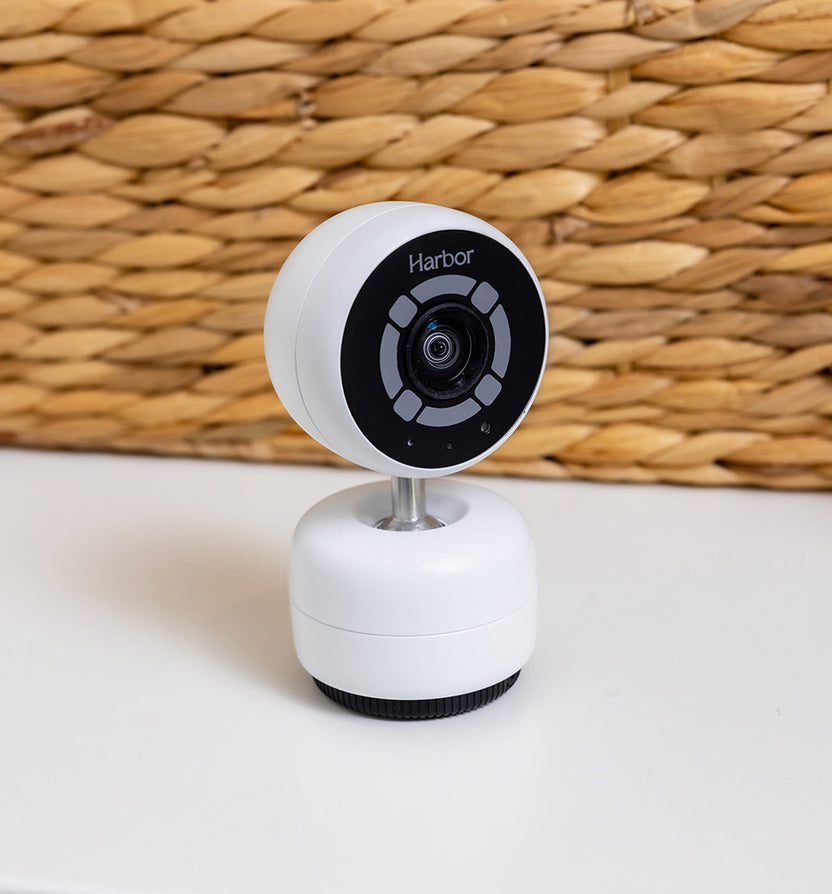
Written by: Dr. Jill Zechowy, MD, MS
Your well-being matters, especially after baby arrives. The postpartum period is a whirlwind of hormonal fluctuations, sleepless nights, and physical recovery following childbirth. While caring for your little one can feel all-consuming, caring for yourself is equally important. But with a little advanced planning, the whole family can thrive.
Common postpartum challenges
The months following childbirth come with physical, emotional, and social challenges—some of which you may not expect. Here are some of the most common things new parents will experience:
Physical postpartum challenges
-
Physical recovery: You’ll be sore, in pain, and almost certainly fatigued
-
Interrupted sleep: Exhaustion, irritability, and emotional depletion are unfortunately common
-
Feeding routines: Breastfeeding (and even bottle feeding!) routines can take a toll on your body and your ability to rest
Emotional postpartum challenges
-
Hormonal shifts: Expect to experience big mood swings and tearfulness as your body adjusts to the experience of giving birth!
Social postpartum challenges
-
Constant caregiving: New parents get little to no time to themselves
-
Isolation and loneliness: When your day revolves around eating, sleeping, and diaper changes, it’s hard to connect with adults
-
Relationship changes: Your role within your partnership will evolve and the type of connection you desire from those around you will change, too!
Needless to say, this is a lot. And it can be really helpful to acknowledge that.
Most parents will have heard about postpartum depression, but what most people actually experience is postpartum depletion, or a state of physical and emotional exhaustion that lowers your resilience and increases the risk of mental health struggles. The antidote? A simple, intentional self-care plan.
Every parent needs a self-care toolbox, or as I like to call them, Motherhood Survival Skills. Here, I share five self-care tools that appear simple but can make a huge difference.
Five self-care strategies for new parents
1. Dream feeds unlock better sleep for everyone
A dream feed is a late-night feeding where you gently rouse your baby to nurse or bottle-feed before they wake on their own. This extends their next stretch of sleep and, by association, yours, too. Think of it as “topping your baby off” so they go longer before getting hungry again. This approach works for babies who are at least one month old.

For couples whose babies will take a bottle, whether with formula or breast milk, take turns doing dream feeds to support each other’s sleep.
For example, if baby goes to bed at 7pm, give a dream feed at 9pm, just before you go to sleep. For the next few hours, you can be “off duty” while your partner is “on duty.” Your partner can manage feeding and a diaper change around 11pm, just before they go to bed. You’ll then handle the next feed while your partner rests.

Adding a second dream feed with the support of a partner should allow you to sleep from 9pm until 2–3am, when baby wakes up hungry. Getting at least five hours of uninterrupted sleep will be more restorative than eight broken hours!
The timing of your dream feed can be flexible. It may take some trial and error to find what works well for your baby and allows you and your partner to get at least five hours of uninterrupted sleep.
2. Shower every day
It sounds simple, but regular showers are a powerful mental health tool. Feeling fresh and clean makes you feel better about yourself. And when you feel better about yourself, you'll be more likely to get out of the house or invite a friend over!
As with everything postpartum, your post-baby shower may not look like your pre-baby shower. Know that even a 3-minute rinse can make a difference, and consider coordinating shower time with your partner so you can have hands-on help with baby. And if a partner isn’t available, place a bouncy seat or baby monitor in the bathroom while you take a few minutes for yourself.
3. Go for a walk outside
Fresh air, movement, and sunshine are all guaranteed to boost your mood. More specifically, natural light in the morning helps reset your circadian rhythm and can boost sleep quality.
Start with 10 minutes. You’ll be surprised how far it takes you! For adults, daily walks have been proven to boost mood and energy, regulate sleep patterns, and release feel-good myokines*. For infants, getting outside for a walk calms fussiness, offers stimulation, and regulates sleep patterns.
(*Physical activity has been shown to have a strong mood-boosting effect. Muscle contractions release myokines, sometimes called the hope molecule, from muscle cells. Myokines increase GABA activity in your brain, supporting relaxation and a mood boost. GABA activity declines precipitously following hormonal changes at birth, and this decrease contributes to postpartum depression. In this case, physical activity can boost what giving birth depletes!)
4. Connect with other parents
Caring for a newborn can be isolating. Spending time with other people who are in the same boat and have babies around the same age as yours will help you feel seen, supported, and sane.
Proactively seeking out social support can make a world of a difference, as reaching out when you’re already struggling can feel like an impossible task. Here are some popular ways to find new-parent communities:
-
The Mom Walk Collective: 450 cities across six countries!
-
Story and playgroups: Local libraries and community centers
-
Postpartum support groups: Doctors’ offices, religious communities, and Postpartum Support International (PSI)
-
Apps: Check out Peanut and Bumble BFF
-
Mommy and Me classes: Often held at yoga studios, gyms, and parks
5. Schedule meaningful time off
You need breaks. Carving out time to rest, socialize, or just not have one eye on baby at all times isn’t a luxury, it’s survival.
Asking for help early and often can make time off a habit. Consider asking your partner to manage night feeds or weekend naps, invite friends over to watch baby while you shower or go for a walk, and don’t hesitate to find trusted babysitters or postpartum doulas to give you scheduled time off during the week!
When to reach out for professional support
If you notice any of the following, talk to your doctor, baby’s pediatrician, or a mental health care specialist about whether you might be experiencing postpartum depression:
-
Feeling overwhelmed nearly every day
-
Crying frequently or feeling numb
-
Recurring thoughts that you’re not a good mom
-
Experiencing episodes of rage
-
Struggling to bond with baby
You’re not alone in feeling this way—thousands if not millions of mothers have walked this path before. You are not failing as a parent, partner, or human. Help is available if you know where to find it.
If you’re not in crisis but want someone to talk to, reach out to the National Maternal Mental Health Hotline at 1-833-852-6262. It’s a 24/7, free, and confidential service for parents experiencing mental health challenges.
Let’s review
Consider printing out these five tips and putting them on your refrigerator, desk, or coffee table as a visible reminder:
-
Add a dream feed and stagger feeds to give you and your partner at least five hours of uninterrupted sleep
-
Take a shower every day
-
Take a 10-minute walk every day, ideally in the morning
-
Connect with other moms, in person or virtually, who are in the same situation as you
-
Intentionally schedule time off and ask for support to make it possible
When you don’t take time for yourself, your stress levels rise. Even in quiet moments, it can be hard to really relax. Over time, your sleep may suffer, patience wears thin, and your capacity to handle everyday challenges will shrink. Motherhood starts to feel less joyful and more overwhelming.
All parents (even you!) deserve hands-on support. That may look like leaning on family, hiring a postpartum doula, splitting tasks with a partner, or creating a babysitting swap with friends. It can also look like choosing the Harbor Monitor. We believe in supporting parents through every stage of the journey with telehealth services, coaching, and community support.
With consistent, intentional self-care, you’ll notice a shift not only in how you feel but also in how you show up for your family. You’re building a beautiful life; when you feel good, it’s easier to enjoy it. Your family doesn’t just need a present mom, they need a happy one. Use these five survival skills as a starting point and discover what makes you thrive.
About Dr. Zechowy
Dr. Jill Zechowy, MD, MS, is a perinatal mental health physician who has helped hundreds of women transition to motherhood with confidence and contentment. She is the author of Motherhood Survival Manual: Your Prenatal Guide to Prevent Postpartum Depression & Anxiety. When she’s not supporting new parents, Dr. Jill enjoys yoga, connecting with mom friends, and spending time in her garden. She is a mom of two living in Santa Rosa, California. Ready to dive deeper into motherhood survival skills and sleep strategies? Visit MotherhoodSurvivalManual.com.
“There was a mom in my neighborhood who always seemed more rested, organized, and joyful than the rest of us despite having more kids. I assumed she was just naturally better at motherhood. But when I asked what her secret was, her answer surprised me: “Get all the help you can get.” She didn’t do it all. She had a balanced support plan with her partner and regular help from family and caregivers. She prioritized her own needs. It was a powerful reminder to not compare ourselves to others, as we rarely see the support behind the scenes. Parenting doesn’t mean doing it alone!” — Dr. Jill Zechowy, MD, MS




